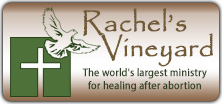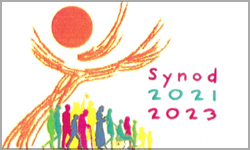Bishop Glen John Provost celebrated the Mass of Chrism with the priests of the Diocese on Wednesday, April 13, in the Cathedral of the Immaculate Conception. At this Mass, customarily in Holy Week, the Bishop blessed the holy oils to be used throughout the year for sacramental celebrations in the Diocese of Lake Charles. He addressed his homily to the priests and offered the following reflection:
Chrism Mass 2022
“[T]he Lord has anointed me.” Isaiah 61:1
The Priesthood is a singular vocation, originating in the intention of Jesus Christ Himself, the High Priest. This sacrament is lived by ordained men in whose hands are found the Body of Christ. In the words of St. Augustine, often quoted by Pope St. John XXIII, “O wonderful the dignity of priests; in whose hands the Son of God is made flesh as in the womb of the Virgin.” Since the Priesthood comes from our Lord, Jesus Christ, let us delve into the Scriptures, beginning with the Gospel of this Chrism Mass.
When our Lord stood in the synagogue of Nazareth, He pronounced the prophecy of Isaiah as fulfilled. “The Spirit of the Lord is upon me, because he has anointed me” (Luke 4:18; cf. Isaiah 61:1). In proclaiming the fulfillment of this Messianic prophecy, He was establishing the premise for an even greater mystery. Jesus Christ would fulfill the prophecy of the Suffering Servant and in so doing reaffirm His Priesthood. Isaiah writes of the Suffering Servant, “[I]t was our infirmities that he bore, our sufferings that he endured… [H]e was pierced for our offenses, crushed for our sins, upon him was the chastisement that makes us whole, by his stripes we were healed” (Isaiah 53:4-5). As scripture scholars and our Tradition will point out, “[E]ach time Christ’s role is described by reference to the Servant’s expiatory sacrifice of himself, he is being implicitly presented to us as a priest” (cf. André Feuillet, The Priesthood of Christ and His Ministers, Doubleday, 1975, p. 204). Sacrifice defines the Priesthood. And what makes the Priesthood of Jesus Christ even more distinct is that He is the sacrifice.
When confronting the ambition of James and John in the Gospel of St. Mark, our Lord will conclude, “For the Son of Man did not come to be served but to serve and to give his life as a ransom for many” (Mark 10:45). Repeated in the Gospel of St. Mathew (20:28), this rich notion of “ransom,” highlighted in my pastoral letter last November (2021), is found throughout the New Testament. Not to be overlooked is the link between ransom and service. The One who serves is also the One who ransoms. In fact, He not only ransoms. He is the ransom. The ransom is His ultimate service. Every mention of service (cf. Luke 22:27) suggests that there is also more to give, for “the Son of Man did not come to be served but to serve” (Mark 10:45). The ultimate service is to give His life “for many.” Daniel prophesied about this service: “[N]ations and peoples of every language serve him” (Daniel 7:14). The great paradox is that this Son of Man, who will receive the service of all, “… must first of all serve, after the manner of the suffering Servant, by sacrificing his life as a ransom for the sinful multitude” (Feuillet, ibid.).
St. Paul will take up this prophetic theme in texts too numerous to list (e.g. Romans 5:8; 8:32; Ephesians 5:2). However, one will suffice. He reminds the Galatians that “the Lord Jesus Christ… gave himself for our sins that he might rescue us from the present evil age…” (Galatians 1:3,4). This fundamental notion of the servant who suffers as expiation reaches a climax in those words of St. Paul that never cease to stir the heart of every Christian: “I live, no longer I, but Christ lives in me; insofar as I now live in the flesh, I live by faith in the Son of God who has loved me and given himself up for me” (Galatians 2:20).
While these words have significance for every believer, for the priest they are immensely important. Every Christian is called to imitate our Lord in service, but the priest serves the Christian faithful in a unique way, as priest, by offering the re-presentation of the Eucharistic sacrifice. When we say that there is no Eucharist without the priesthood, we are pointing to the fundamental unity between priest and victim.
The priesthood rests on three truths of our faith. First, at the Last Supper our Lord transformed bread and wine into His Incarnate Self. Second, at this same Last Supper our Lord offered His human life to His Heavenly Father in a sacrifice to be completed at Calvary. And, finally, at the Supper on the night before He died, Christ conferred on the Apostles the power to re-present His self-offering. His words spoken by the Priest consecrate bread and wine bringing about a complete change in the whole substance of the bread and wine into the Body and Blood of Christ, a change properly and fittingly called Transubstantiation. The Last Supper, the Lord’s self-sacrifice on Calvary, and the Sacrifice of the priest at Mass constitute one single sacrifice to the glory of God and the sanctification of His people “until He comes.” In the Paschal Mystery we see unfolding before us the mystery of the Eucharist: the Eucharist as Real Presence, the Eucharist as Holy Communion, and the Eucharist as the Sacrifice of the Mass.
We might paraphrase the words of St. Peter (2 Peter 1:4) and say, “Remember, priest, your dignity.” As Father John Hardon pointed out, “the single most devastating error to plague the Church… has been the denial of … the basic dignity of the priesthood” (article: “No Eucharist Without the Priesthood”). We live in disaffected times where the very priesthood of Christ is called into question, not to mention His intention to establish that priesthood. Priests, above all, need to appreciate the dignity to which they are called in service. There can be no disconnection in the life of the priest between what he believes and how he lives. We must also guard with tenacious zeal the precious gift of the Priesthood, as revealed in the Sacred Scriptures, affirmed in our Sacred Tradition, and reflected in the sublime teaching of our greatest saints. Our liturgical celebrations, especially the Eucharistic sacrifice, must be the best of what we have to offer. In doing this, we serve. “Remember, priest, your dignity.”
And from whence does that dignity come? From Christ Himself, who as High Priest of the New Covenant established the Sacrament of the Priesthood. As servant He gave Himself as an offering, and in so doing intended that His priests do the same in His memory. Through their participation in the one and only sacrifice, the People of God are brought to a knowledge and love of Jesus Christ. He is the only way, truth, and life.
There are some who would question the relevance of the priesthood as lived today, who see celibacy as a path to clericalism and miscreance. They are misguided and interpret everything through the prism of the material world. There are still others who wish to replace priestly service completely with non-ordained ministry. This approach displays an ignorance of 20 centuries of Church history, a rejection of the timeless teaching of the Church’s Magisterium, and a disregard for the work of the Holy Spirit. As I heard once said in a theological discussion by what I would term a misguided representative of these positions, “We need to get away from these Medieval constructs.” But can we? Should we? Is truth Medieval or, for that matter, restricted to any age? To quote C. S. Lewis (Oxford History of English Literature, “English Literature in the Sixteenth Century”): “Such a preposterous conception can be accepted only if you swallow the whole creed of humanism at the same time.” To cite another astute observer of current trends in the Church today: “In a storm, it does not help the boat with lost orientation to move the lighthouse” (Cardinal Pell, Prison Journal, vol. 3, Ignatius, 2021, p. 245). The problem with many of these approaches to the priesthood is they fail to ask the right question. This, in my opinion, betrays a misunderstanding of Christology and Ecclesiology. We must seek the lighthouse. The question which must be asked is “What did Christ intend?” And for that question to be answered, we must turn to the Sacred Scriptures because, to cite Pope Benedict XVI, “[W]hat can faith in Jesus as the Christ possibly mean, … if the man Jesus was so completely different from the picture that the Evangelists painted of him and that the Church, on the evidence of the Gospels, takes as the basis of her preaching?” (Pope Benedict XVI, Jesus of Nazareth, vol. 1, Ignatius, 2007. xi). If we seek answers, we return to the source, and the source in this case is what Jesus said and did. Jesus Christ is the lighthouse that brings the ship safely to shore.
I would wish to conclude with a passage taken from the Catechism of St. John Vianney. He writes:
After God, the priest is everything. Leave a parish twenty years without priests, they will worship beasts. If the missionary Father and I were to go away, you would say, ‘What can we do in this church? There is no Mass. Our Lord is no longer there. We may as well pray at home.’ When people wish to destroy religion, they begin by attacking the priest, because where there is no longer any priest there is no sacrifice, and where there is no longer any sacrifice there is no religion.
O God, spare us from the afflictions of this present age. What we cannot understand, inspire us to grasp with Your Wisdom. When we fail in patience or endurance, strengthen us to persevere with Your Strength. We are Your priests, who hold the Body of Your Son in our hands in the celebration of Holy Mass. Make of us true servants, faithful to the Gospel of Your Son and the Church which He established. For the priests who have grown old in Your service, grant them forbearance in facing difficulties and courage to reach their goal. For the priests who still labor in the vineyard, make Your presence known to them, supporting and comforting them in their trials and bringing them joy to carry out their priestly service. May we all reach that end for which You have ordained us and rejoice with those whom we have served, in the Kingdom where you live and reign with Your Son, our High Priest, and the Holy Spirit, God, forever and ever. Amen.
















